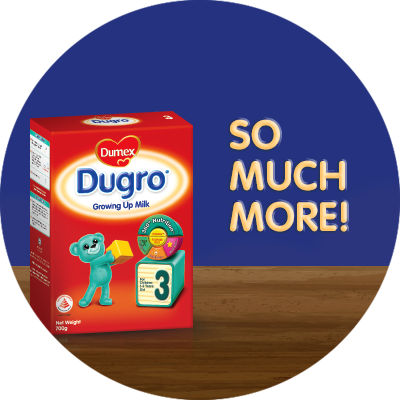Breastfeeding is the best for babies and a healthy diet / maternal nutrition is important when breastfeeding. A decision not to breastfeed can be difficult to reverse. Infant formula is suitable from birth when babies are not breastfed. It is recommended that all formula milks be used on the advice of a doctor, midwife, health visitor, public health nurse, dietitian, pharmacist, or other professional responsible for maternal and child care and the financial implications should be considered. All preparation and feeding instructions should be followed carefully as inappropriate preparation could lead to health hazards.
Elimination Problems In Babies and Children by SG Jimenz
Elimination of the wastes of the body particularly bowel movement of a baby or child is a major concern of many parents and caretakers. They do not know at times if the child has normal or abnormal patterns of defecation and when to seek for doctor's advice.
It is the aim of this article to help parents understand the problem of constipation. The following questions will be answered:
1.When do we label a child as having constipation?
2. What is the normal number of bowel movements in a baby or child?
3. What are the causes of constipation?
4. What is functional constipation?
5. When do I need to bring my child to a physician?
6. What initial remedies can I offer at home to my constipated child?
When do we label a child as having constipation?
Constipation is a symptom which means a decrease in the number of defecations per day and/or a change in the consistency of stools. Thus, it also considered in a child having daily bowel movements but has painful defecation because of hard, dry and unusually large stools. It is a common problem in babies and children. Actually, it is considered as the bread and butter of pediatric gastroenterologists since it accounts for 25% of our out-patient consults. Though it is a frequent symptom, it seldom carries a significant cause in this age group as we will find out later.
What are the causes of constipation?
Before I present the common causes of constipation in children we first need to understand what happens during a bowel movement. For defecation to proceed, one needs a normal rectum for stool storage and puborectalis muscle, normal internal and external anal sphincters to push the stools out and normal nerve innervations for coordinated movements. One also needs enough water in the rectum to give bulk to the stools and normal movements of the colon to push the stools out of the rectum. Absence of any of the above may lead to constipation.
CAUSES:
1. Functional constipation
This is the most common cause of constipation in children.""Functional"" meaning no organic pathology can be found after a thorough history, a normal physical examination and normal diagnostic work ups. Children who develop functional constipation associate discomfort with defecation. The most common cause of discomfort or pain is anal fissures, use of suppositories or fleet enemas secondary to large stools. What happen is that because of the pain that they feel, the child withholds the stools in order to prevent expulsion and the pain it is expected to bring. Stool collects in the rectum, in time the rectum becomes big. As it enlarges it become less capable of evacuating the stools and its sensory capacity diminish thus making retention easier. Eventually, the constipation becomes self-perpetuating.
The Rome criteria, formulated by a group of pediatricians, are symptom-based criteria to differentiate among the different types of functional constipation which are:
i. Infant dyschezia
a) 10 minutes of straining and crying before successful passage of soft stool in a normal baby
b) less than 6 months of age
ii. Functional constipation
In babies and preschool children, at least 2 weeks duration of
a) Scybalous, pebble-like, hard stools
b) Firm stools, two or fewer times per week
c) No evidence of structural, metabolic and endocrine disease
iii. Functional fecal retention
From infancy to age 16 years, a history of at least 12 weeks of:
a) Passage of large diameter stools at intervals less than two times per week
b) Retentive posturing, avoiding defecation by purposefully contracting the pelvic floor
c) As the pelvic floor muscles fatigue, using the gluteal muscles, squeezing the buttocks together
ix. Functional nonretentive fecal soiling
Once a week or more for the preceding 12 weeks in a child older than 4 years with a history of defecation into places at times inappropriate to the social context in the absence of structural or inflammatory disease and signs of fecal retention.
2. Dietary causes
i. Lack of fiber in the diet- low intake of vegetables, fruits, whole grains.
ii. Lack of water in the diet
3. Intake of drugs that affect motility
i. Antacids like aluminum magnesium hydroxide
ii. Iron supplement
4. Metabolic and endocrine diseases
Hypothyroidism- common in babies or children born of mothers with hyperthyroidism or goiter. Affected child is slow in everything including slow movement of the gastrointestinal tract thus causing constipation.
5. Neurologic and psychiatric conditions
Mental retardation- constipation is a common accompanying symptom since children with mental retardation usually are sedentary with an associated slow movements of the muscles including the muscles of defecation.
6. Problems in the colon and rectum
Hirschsprung's disease- constipation in the baby period, in contrast to constipation in older children, should always be a concern to the attending physician and the family. Failure of passage of meconium or the first black stools of the babies in the first 24-48 hours especially if it is associated with abdominal distension, greenish vomitus means that there might be hirschsprung's disease. It is a problem in the nerves leading to failure of the normal movements in the colon. The treatment is a surgical procedure known as Endorectal Pullthrough. This is one of the causes of constipation wherein surgical referral is mandatory. If you will notice most of the other causes can be managed by medical treatment.
When do I need to bring my child to a physician?
As I have shown you, constipation in children is more often functional unless you see the following red flags necessitating immediate consult:
1. Age of onset less than 12 months
2. Delayed passage of meconium (more than 24-48 hours)
3. Failure to gain weight
4. No withholding- because of the pain that a child experience during defecation usually they withhold it in functional constipation
5. No soiling- in functional constipation because of the inability to pass out stools usually they have overflow incontinence thus soiling
6. Empty rectal vault on rectal examination
7. Cutaneous pigmentary abnormalities
8. Presence of extraintestinal symptoms
9. Urinary bladder disease
10. No response to conventional treatment
What initial remedies can I offer at home?
- Increase fluid intake- ideal to drink 8 glasses of day in children. Avoid cola drinks since it has a dehydrating effect on the stools.
- Increase fibers in the diet - offer foods such as carrots and cabbage, grapes, prunes, papaya, whole grains, corn, and nuts. Avoid foods low in fibre like cheese, eggs and meats. Recommended fibre intake per day is around 20-35gms per day. Limit chocolates and ice cream too. One may also use fibre supplement pills to increase fibre in the body
- .After your baby turns 6 months old, you may add non-absorbable carbohydrates in the milk found in dark corn syrup or Karo syrup.
- As much as possible, avoid giving suppositories since it cause a lot of pain and trauma to the child.
If all of the above fails, seek professional help. For the medical treatment of long standing constipation it needs 3 things (that is after ruling out the organic causes of constipation): Initial disimpaction - to empty the rectal vault either with enema or castor oil. The dose will depend on the age.
Maintenance - to prevent reaccumulation of fecal materials and to allow the rectum to return to normal size. Most commonly used medications are Lactulose, Senna concentrate or mineral oil.
Follow up- to determine when the laxatives can be discontinued.
Conclusion:
Constipation is the decrease in the frequency of bowel movements per day and/or the change in the consistency of the stools.
There is no definite numbers in terms of the normal bowel movements per day or per week. It varies from one person to the other.
In children, the most common cause of constipation is functional constipation.
Parents and caregivers should be aware of the red flag signs in constipation.
In taking care of children with constipation, one may try home remedies first and if the symptoms persist then seek professional help.
Disclaimer: All content on this Website is provided solely for informational purposes and is not intended as a substitute for medical and/or other professional advice for your specific condition. Please do not disregard medical and/or other professional advice or delay seeking it because of something you have read on this Website. Always seek medical advice before starting any new treatments.


Ask Our Careline
Whatever’s on your mind, we’re here to help




